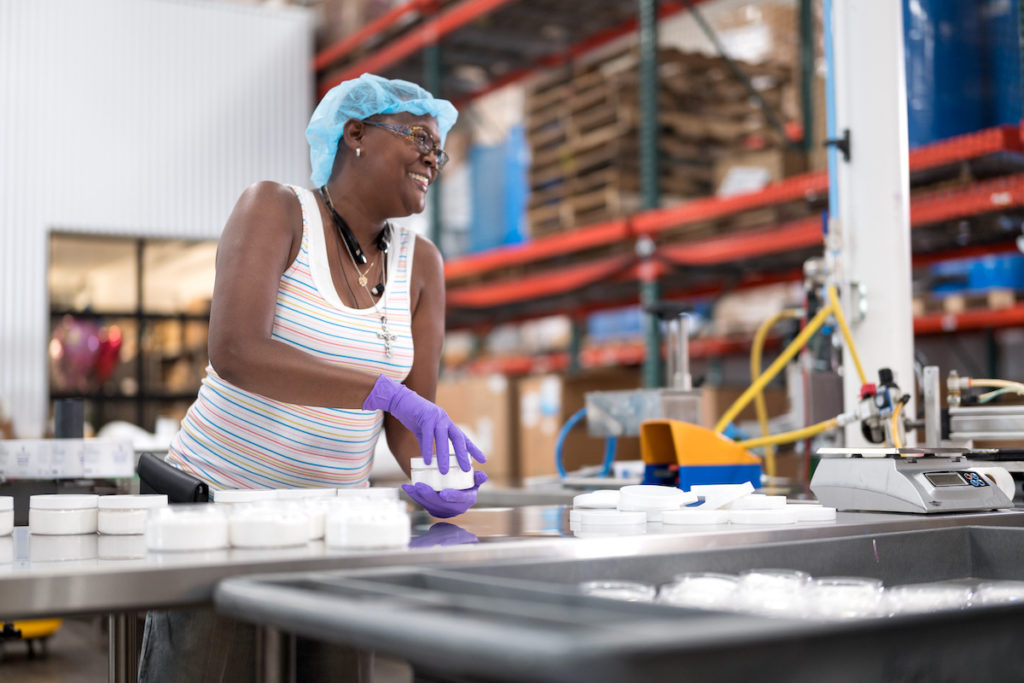
Thistle Farms, a Nashville nonprofit that sells products made by survivors of addiction and sexual exploitation, is expanding yet again, thanks to a spike in sales during the pandemic.
CEO Hal Cato said he signed a lease last week for a new production facility. At 22,000 square feet, it’s twice the size of their current one.
“I thought we had our 10-year home, and we made it 4-and-a-half years,” said Cato, laughing.
He’s referring to when they moved into the current production facility, in 2016, after Thistle Farms products were picked up by Whole Foods.
Since then, Cato said, online sales have continued to grow — last year by more than 60%.
“We can sell more than we can produce and ship and that’s a good problem to have,” he said.
Thistle Farms shipped more than 35,000 packages across the country last year. And staff hand-poured more than 350,000 products, including candles and essential oils, among other body and home products.
The revenue from the business, or “social enterprise” as they call it, helps fund the Thistle Farms residential program. It gives survivors free housing and clinical services for two years — and a job.
“We’re at a place where our social enterprise is able to sustain the program side. Not 100%, but we’re pretty close to 70% sustainability, which is unheard of in a nonprofit,” said Director of Residential Services Shelia Simpkins said.
Sales have dipped a little this year, but demand is still high. And neither Simpkins nor Cato are making predictions about whether they’ll outgrow their new production facility as quickly as the last.
Clarification: A previous version of this story said products are made by survivors of “sex work and human trafficking.” It’s more accurate to say that they survived addiction and sexual exploitation.

